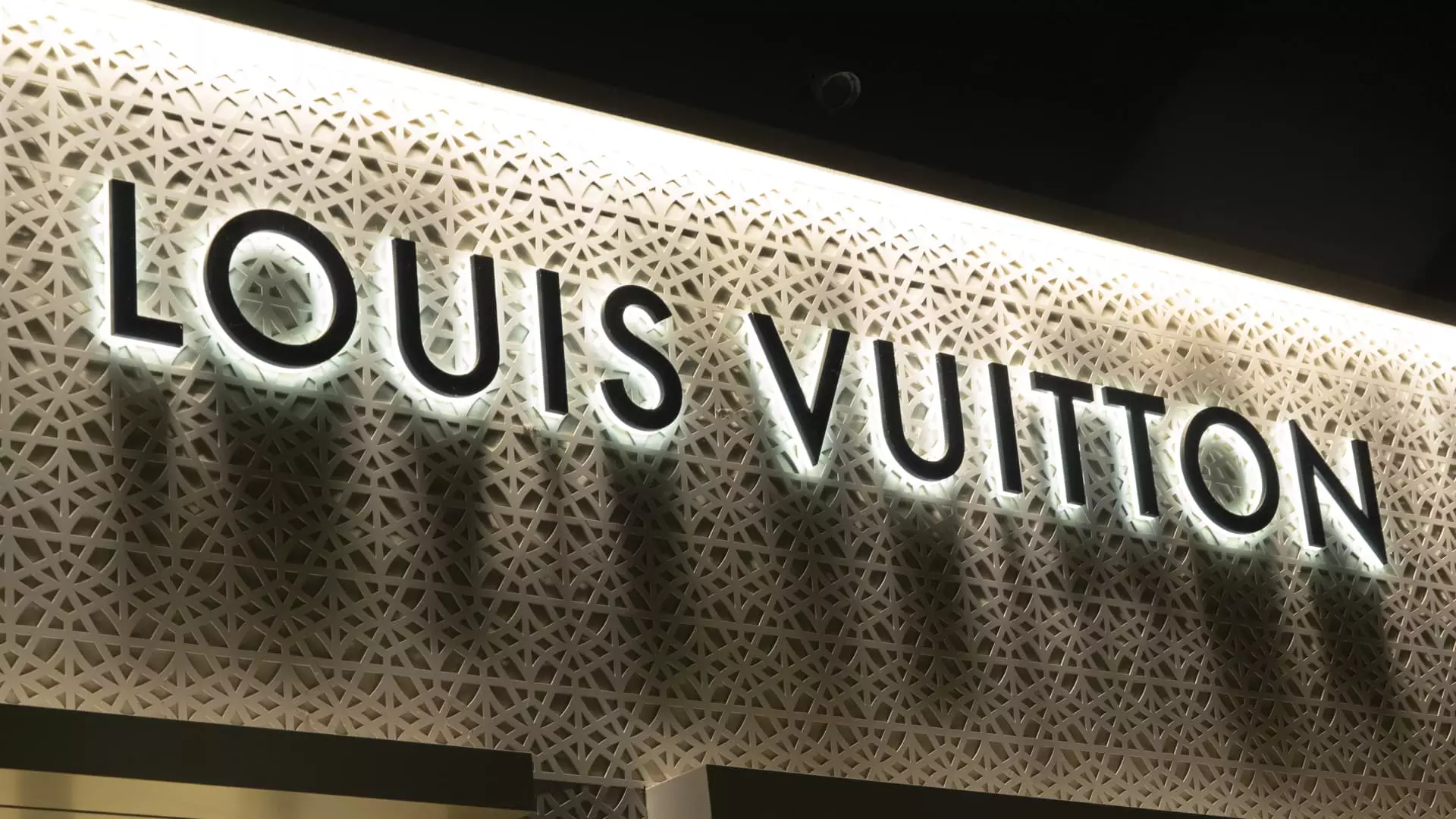In a compelling reflection of the high-end market’s potential recovery, LVMH, the world’s largest luxury goods conglomerate, has unveiled its full-year sales for 2024, revealing results that exceeded analysts’ expectations. The company, which boasts an impressive portfolio including globally recognized brands such as Louis Vuitton, Moët & Chandon, and Hennessy, reported revenues of €84.68 billion ($88.27 billion), surpassing LSEG analysts’ forecasts of €84.38 billion. This growth reflects a 1% increase in organic revenue compared to the previous year, demonstrating resilience in a sector that has faced significant challenges.
This report signals a notable turnaround in the luxury sector, particularly following a downturn in the third quarter when LVMH experienced its first sales decline since the pandemic. Much of the growth can be attributed to rising consumer spending in key markets like Europe, the United States, and Japan. However, it is important to highlight the continued struggles of the luxury market in the broader Asian region, which remains relatively weak in comparison.
LVMH’s results exhibit robust performance across various sectors, most notably in its selective retailing segment—which includes Sephora—alongside the perfume and cosmetics sectors. However, the group’s flagship fashion and leather goods segments, as well as its wine and spirits division, have failed to keep pace with these gains. Notably, sales of cognac and spirits have experienced significant declines, prompting CEO Bernard Arnault to express cautious optimism regarding a recovery within the next two years as new leadership takes charge of these struggling areas.
Arnault anchored his analysis on the company’s strategic adaptability in the face of ongoing geopolitical tensions and economic headwinds. He emphasized LVMH’s historical capacity to navigate turbulent times, reinforcing the belief that the company’s robust strategies can withstand external pressures.
LVMH’s performance serves as a critical bellwether for the luxury industry at large, which has been under significant stress due to decreased sales in China and varied macroeconomic challenges. Despite these hurdles, the luxury market has exhibited signs of resurgence, evidenced by recent positive reports from other key players in the sector. For instance, Richemont, the parent company of Cartier, reported record quarterly sales, highlighting a consumer return to luxury shopping during the holiday season. Similarly, Burberry noted a minimal drop in sales, suggesting that strategic adjustments may yield positive results.
Analysts at Jefferies have indicated that LVMH’s superior breadth across various luxury categories—including wines and spirits, fashion, leather goods, watches and jewelry, as well as cosmetics and perfume—positions it as an essential barometer for broader industry trends. Investors have evidently taken note, with LVMH shares climbing approximately 18% year-to-date, marking a significant recovery from a more than 13% decline earlier this year.
With a mix of confidence and caution, Arnault highlighted an optimistic outlook for 2025. His comments indicate a belief that, while the company navigates present uncertainties, the groundwork for future growth is being firmly laid. The past year has taught the luxury conglomerate valuable lessons about resilience, consumer behavior, and strategic flexibility.
As LVMH continues to adapt to the ever-evolving landscape of luxury consumption, its ability to generate a turnaround in regions like Asia will be crucial. Analysts suggest that as economic conditions stabilize and consumer confidence rebounds, LVMH is well-positioned to capitalize on these opportunities, reaffirming its status as a leader in the luxury sector.
LVMH’s strong showing in 2024 not only underscores the company’s strategic prowess but also signals hope amidst a backdrop of uncertainty within the luxury market. As consumer dynamics shift and the global economy adjusts, all eyes will be on LVMH as a key player navigating these unpredictable waters, poised to reclaim its place at the forefront of luxury innovation and sales.

